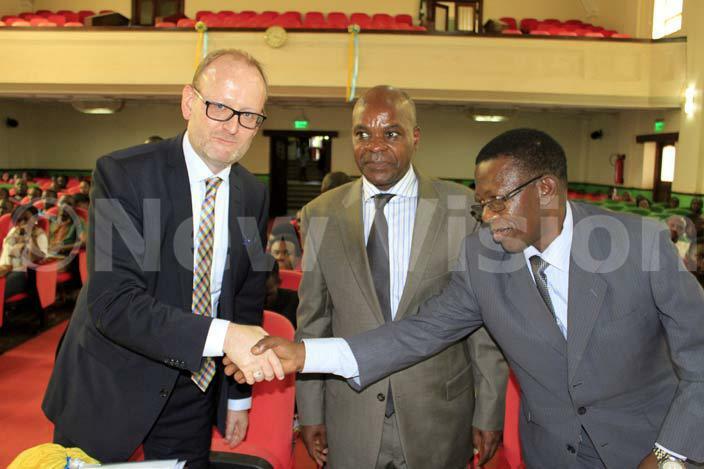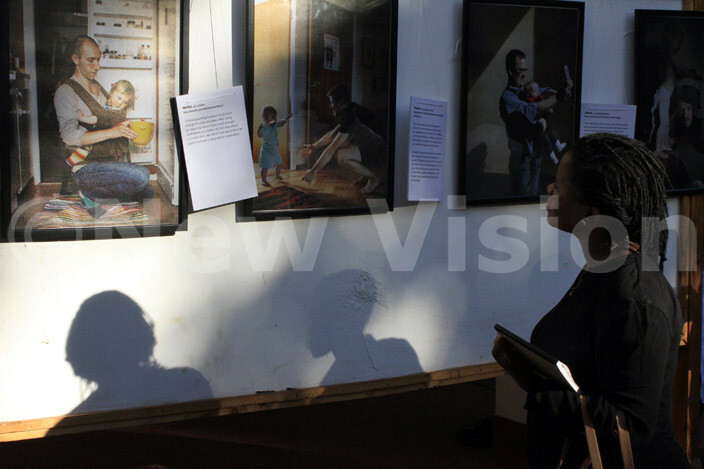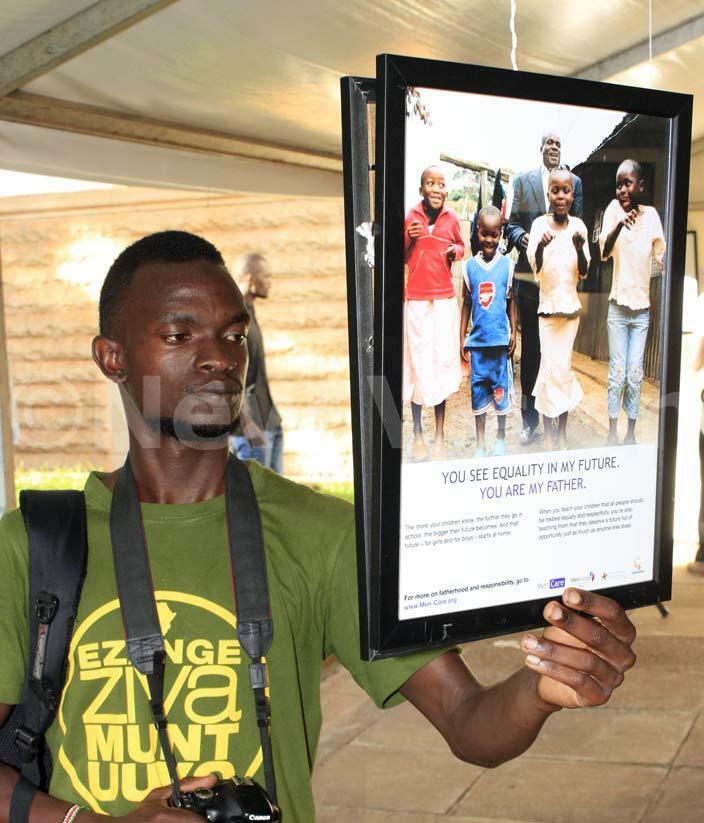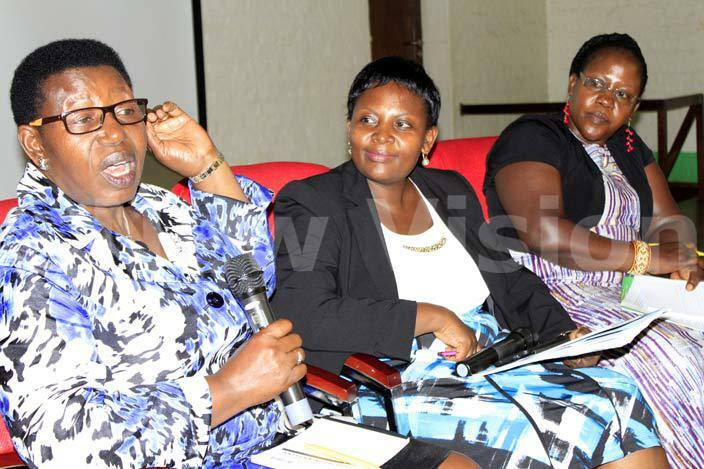Parenting exhibition challenges Ugandan men
The first of its kind, the Swedish Embassy in partnership with Makerere University School of Women and Gender Studies held a photo exhibition showcasing the Swedish dad’s parenting experiences.
He marvelled at the photos that hang in the exhibition tent. Each seemed to tell an unusual story. A father with a baby on his back while he washed the dishes, a look of wonder.
Portius Buyinza, a third-year student at Makerere University, could barely hide what was going on in his mind. And speaking to no one in particular, he said, "Huh! It will take an entire generation for most men in Uganda to do this."
The first of its kind, the Swedish Embassy in partnership with Makerere University School of Women and Gender Studies held a photo exhibition showcasing the Swedish dad's parenting experiences.
This according to the Swedish Ambassador, Urban Andersson, was meant to share experiences from the different countries to learn from each other.
 Swedish Ambassador to Uganda Urban Anderson, the Acting Deputy Vice Chancellor Finance and Administration of Makerere University Prof. Joseph Mugisha and Director Research Graduate Training of Makerere University Prof. Buyinza Mukadasi during the dialogue at Makerere University. Photo by Abou Kisige
Swedish Ambassador to Uganda Urban Anderson, the Acting Deputy Vice Chancellor Finance and Administration of Makerere University Prof. Joseph Mugisha and Director Research Graduate Training of Makerere University Prof. Buyinza Mukadasi during the dialogue at Makerere University. Photo by Abou Kisige
Instead of maternity leave, Andersson explained that Sweden was the first country to adopt the parenting leave policy in 1974.
"This was a deliberate political decision meant to encourage men and women to share responsibilities at home, but also enable both of them to engage in paid work," he said.
 Rosebell Kagumire looks at some of the shots during the exhibition. Photo by Abou Kisige
Rosebell Kagumire looks at some of the shots during the exhibition. Photo by Abou KisigeSwedish parents are entitled to 480 days of paid parental leave and of these 90 are reserved for men.
"These family-friendly policies were crucial to grow Sweden's economy and a condition of Sweden's development from one of Europe's poorest countries to one of the most prosperous," he said.
The exhibition was accentuated by a dialogue under the theme, "Parenting and Career Choices" where participants shared experiences and challenges of getting men involved in parenting.
According to Associate Professor Josephine Ahikire, the dean of the school of gender studies, lately the traditional role of a man as a provider is being challenged with the increasing social changes. This, therefore, puts men in a dilemma of what exactly their role is in a home.
 A photographer looks at some the shots. Photo by Abou Kisige
A photographer looks at some the shots. Photo by Abou Kisige"Women are increasingly becoming as much of providers as the men. So the only way out for men is to participate in the roles that were traditionally for women," she said.
But as politician turned woman activist Miria Matembe argues, the situation is slowly changing especially among the educated men. This can also be attributed to the upbringing these young people have had.
 Miria Matembe looks at some of the pictures during the exhibition. Photo Abou Kisige
Miria Matembe looks at some of the pictures during the exhibition. Photo Abou Kisige
 Activist Miria Matembe, New Vision Deputy Editor Catherine Mwesigwa and Josephine Ahikire Dean School of Women and Gender Studies during the dialogue at Makerere University. Photo by Abou Kisige
Activist Miria Matembe, New Vision Deputy Editor Catherine Mwesigwa and Josephine Ahikire Dean School of Women and Gender Studies during the dialogue at Makerere University. Photo by Abou Kisige
"My sons have learnt to treat women as equal partners because that's what they saw from their father. The way a child is raised greatly impacts on who they become in their later lives," she said.
But as Ambassador Andersson explained, different communities have a way of handling its issues and people can only share and learn from each other on what can work across the board.
Male participation in parenting has been found to not only enhance peace and harmony in the home but also facilitate economic growth and development as more women get to participate in the economic spaces.